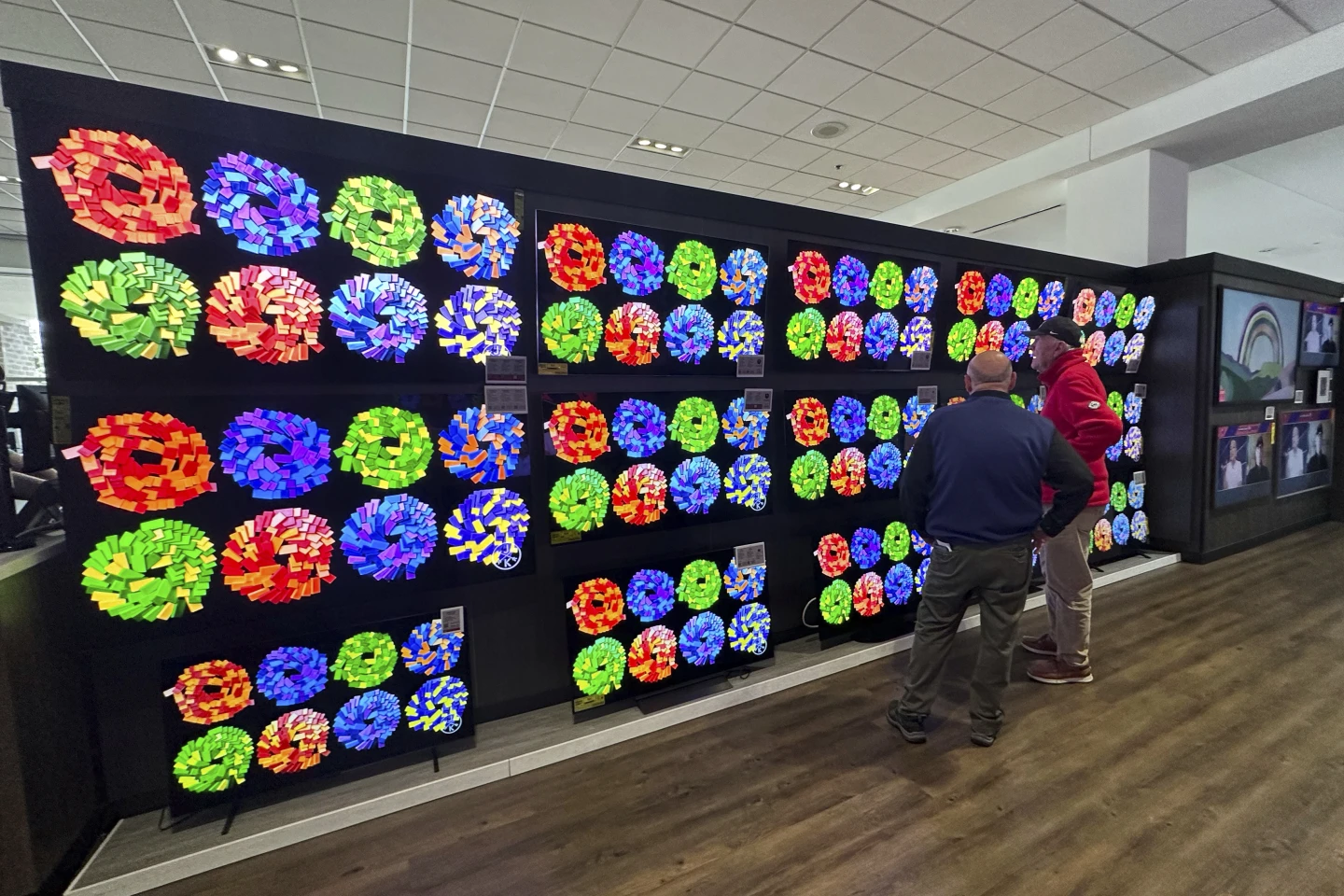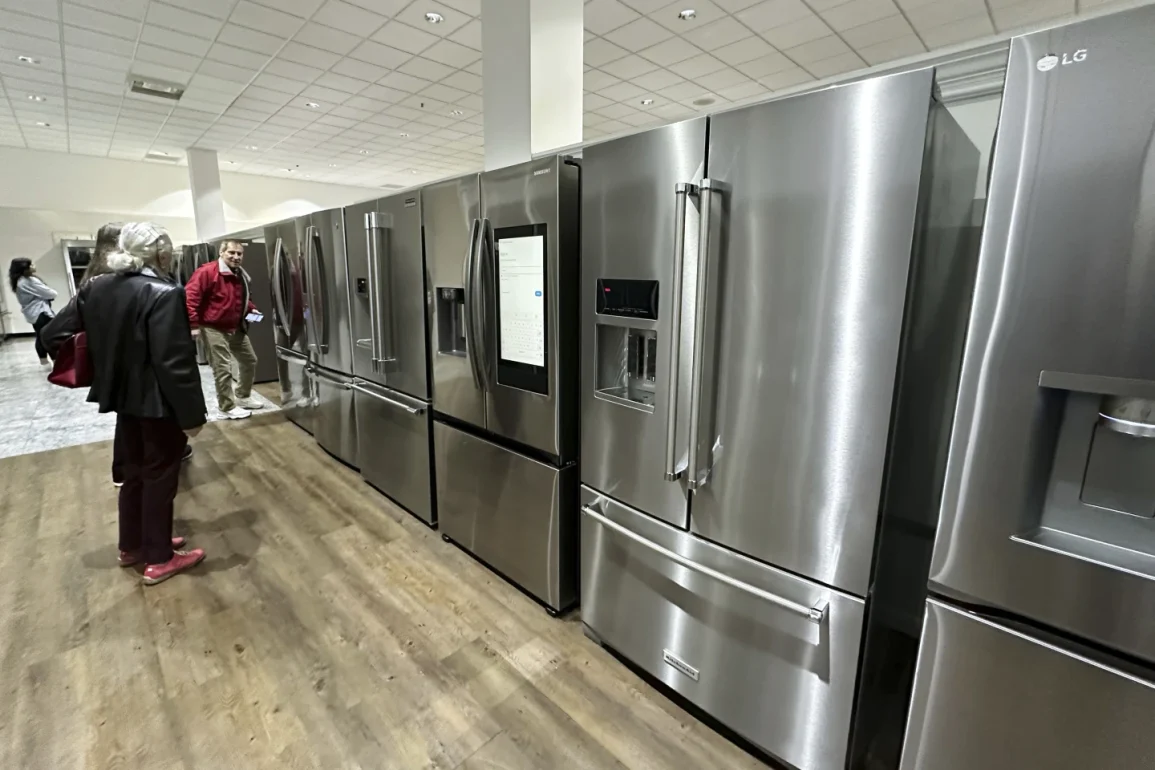In April, U.S. consumer confidence dropped sharply for the fourth month in a row, reflecting growing concerns about President Donald Trump’s trade wars. These trade issues have caused anxiety over possible job losses and higher inflation.
The University of Michigan’s consumer sentiment index, a key measure of public opinion, dropped by 11% in April, reaching 50.8. This is the lowest it has been since the start of the COVID-19 pandemic. Over the past year, the index has fallen by 34%.
Joanne Hsu, the director of the survey, explained that the drop in confidence was widespread, affecting people of all ages, incomes, education levels, regions, and political affiliations.
The number of people who think unemployment will rise in the near future has grown for the fifth month in a row, reaching the highest level since the Great Recession of 2009.
While consumer sentiment is not always a perfect indicator of the economy, it can sometimes reflect public views on presidential leadership. Among Republicans, sentiment dropped 6% in the past month as President Trump pushed for, and then paused, a series of tough tariffs.
James Knightley, an economist at ING, said, “Interestingly, President Trump appears to be getting much of the blame for much of the deterioration in sentiment with 67% of respondents saying the government is doing a ‘poor job’ on fighting inflation and unemployment. Only 18% say it is doing a ‘good job.’”
When asked about the drop in consumer sentiment, White House press secretary Karoline Leavitt told the public to trust President Trump as he carried out his tariff plan.
“As he said, this is going to be a period of transition,” she said. “He wants consumers to trust in him, and they should trust in him.”
The result of the trade war so far has been a 10% baseline tariff on most countries, with imports from China facing a combined 145% tax. Goods from Canada and Mexico are taxed up to 25%, as are imported autos, steel, and aluminum. In response, China imposed a 125% tariff on U.S. goods.

The Trump administration has said it plans to negotiate trade deals with over 75 countries over the next 90 days.
“We are doing really well on our TARIFF POLICY,” Trump said on his social media site, Truth Social. “Very exciting for America, and the World!!! It is moving along quickly.”
The uncertainty caused by the tariffs is also affecting the financial markets. Investors are selling U.S. debt, and the interest rate on the 10-year U.S. Treasury note rose to 4.48% on Friday, up from about 4% earlier in the week. This suggests that more economic instability could be coming.
On Friday, the dollar fell to its lowest level against the euro in three years.
Larry Fink, CEO of investment firm BlackRock, told CNBC that the U.S. economy is very close to, if not already in, a recession.
“I think we’re very close, if not in, a recession now,” Fink said.
The Michigan survey also found that people expect long-term inflation to reach 4.4%, up from 4.1% last month. This increase could be a concern for the U.S. Federal Reserve, as they watch inflation expectations closely. If people expect prices to rise, they may take actions, such as speeding up purchases or asking for higher wages, that could cause inflation to increase further.
The drop in inflation in March, which showed a 2.4% annual rate, seems to be seen as a temporary change, with many economists predicting that the trade wars will push inflation back up.
Americans’ expectations for inflation over the next five years are the highest they’ve been since 1991, according to the forecasting firm Capital Economics.
“Households appear to have come to the same conclusion as markets: the tariffs will do lasting damage to the US economy,” said Harry Chambers, an economist at Capital Economics.

Consumer sentiment is deeply divided along political lines, with Democrats’ sentiment at 34.1 and Republicans’ at 81.9. Both saw significant drops in April.
Among independents, sentiment fell to 46.8 from 55.7, and is now lower than it has been at any point during Joe Biden’s presidency.
Inflation expectations have been rising for several months. Last month, Federal Reserve Chair Jerome Powell described the University of Michigan’s inflation expectations measure as an “outlier,” as other inflation measures, like those based on Treasury securities, remain low and close to the Fed’s 2% target.
Normally, when sentiment falls, it suggests that Americans may cut back on spending. However, in recent years, consumers have sometimes continued spending despite low confidence. The rise in concerns about unemployment could make people more cautious about their spending.
“This lack of labor market confidence lies in sharp contrast to the past several years, when robust spending was supported primarily by strong labor markets and incomes,” said Joanne Hsu.
What makes this situation different is that the ongoing tariff debates have caused uncertainty, leading to hiring freezes and a lack of confidence in making decisions.
David French, senior vice president of government relations at the National Retail Federation, said, “For everybody watching this process unfold, it’s causing a lot of anxiety because they don’t know how to make the right decisions when things change hourly.”


